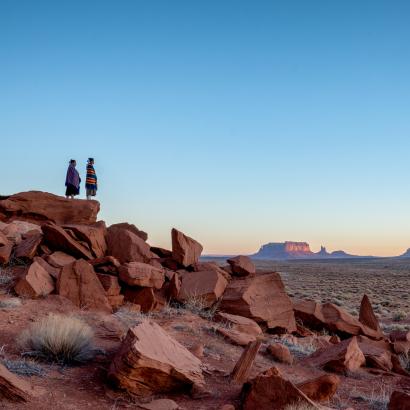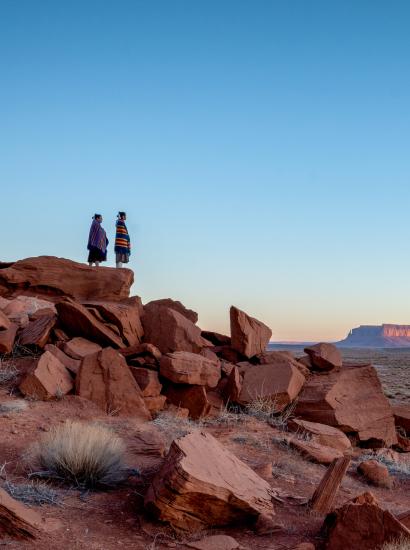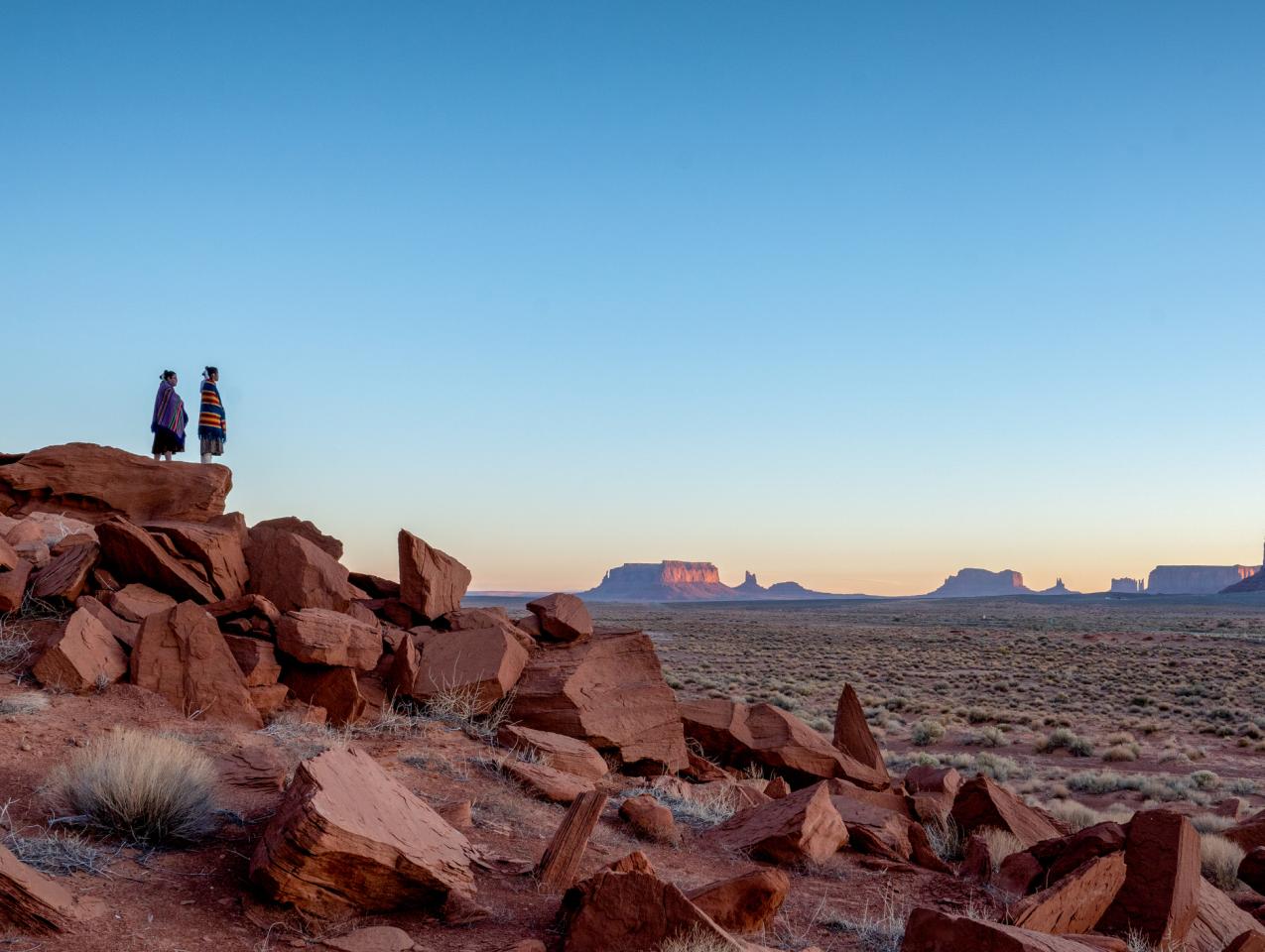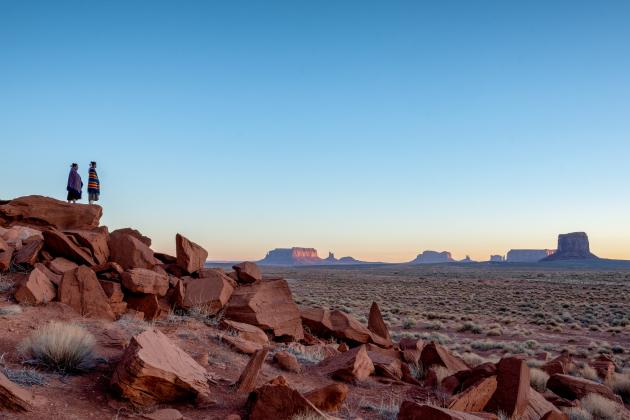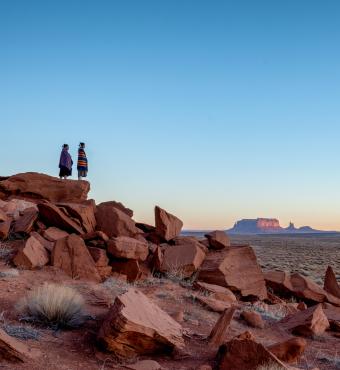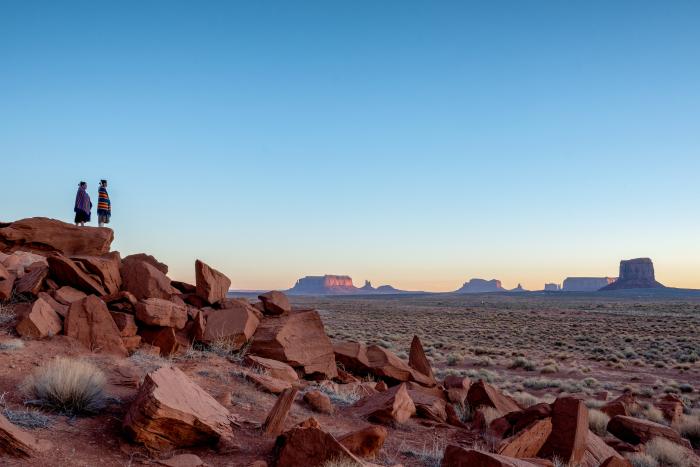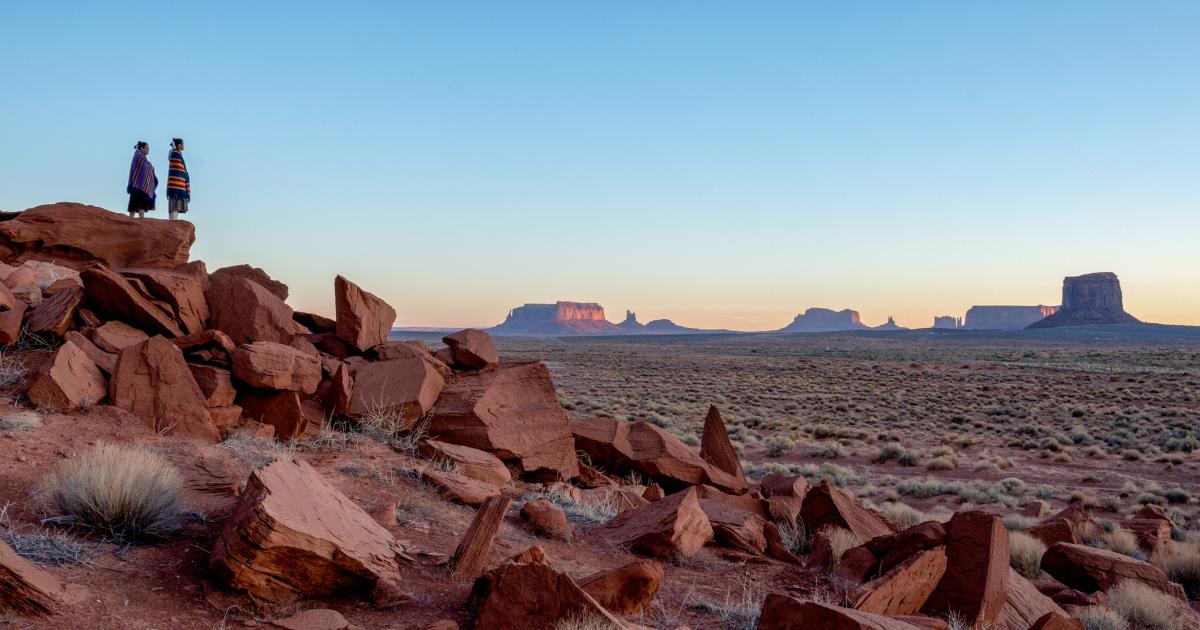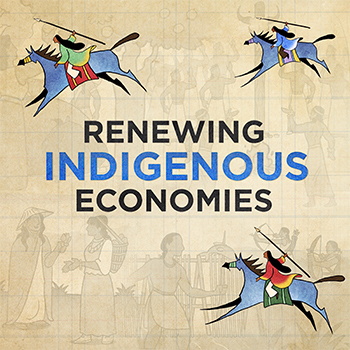The Hoover Institution hosted a workshop of the Renewing Indigenous Economies Project from May 12 to 14, 2022. It was attended by 21 scholars and tribal leaders from various universities and Indigenous nations.
The workshop, “Territory, Culture, and Indigenous Ecology,” was co-led by John and Jean De Nault Senior Fellow Terry Anderson and Ilene and Morton Harris Visiting Fellow Dominic Parker. The participants discussed seven research papers and engaged in a “fireside chat” led by Jonathan Lear, a philosopher from the University of Chicago, and Nina Sanders, citizen of Apsáalooke Nation and curator of the traveling exhibition Apsáalooke Women and Warriors.
The diverse participants represented a wide range of disciplines, including economics, anthropology, art, biology, history, law, philosophy, and political science. As one attendee put it, “This conference turned into an interdisciplinary oasis.”
The papers used historical evidence to provide examples of how American Indian governance institutions and cultural norms evolved among tribes to increase the net yield, or income, within the environments where they lived. As the Hoover project has emphasized in recent publications such as Renewing Indigenous Economies and “Renewing Indigenous Cultures,” property rights and market trade often supported Indigenous societies, economies, and cultures.
The goal of the workshop was to draw a diverse set of scholars who would complement and challenge one another on these themes. One participant said that he left with “greater clarity on how economics can account for cultural values, how cultural values are determined by both individual liberty and collective institutions, and that economics indeed must account for cultural values when dealing with the relationship between territory and private property.”
After welcoming participants with a dinner on May 12, the workshop kicked off with two seminars on the morning of Friday, May 13. Doug Bamforth, Colorado University professor of anthropology, discussed economic activity among precolonial Native Americans. His research has highlighted archaeological evidence of production and trade networks across North America that depended on rights to territories and natural resources. Richard Monette, University of Wisconsin professor of law and director of the Great Lakes Indian Law Center, discussed the cultural essence of property. Monette challenged modern law scholarship by suggesting that property is more a “bundle of values” than it is a “bundle of rights.”
The afternoon session on May 13 focused on lessons learned from precolonial resource governance. Stephen Pyne, emeritus humanities professor at Arizona State University, presented “The Traditional Firestick Meets the Modern Fire Engine,” his study emphasizing the long-standing role of “experts”—often government bureaucrats—in suppressing local and Indigenous knowledge of fire management, thereby exacerbating fire risk. Peter David, a retired biologist with the Great Lakes Indian Fish and Wildlife Commission, presented on the traditional Ojibwe relationship with Ma'iingan (the wolf). His paper illustrated conflicts that can arise when cultures collide, such as between Ojibwe views of wolves as brothers versus a livestock producer’s views of wolves as threats. This presentation stimulated discussion about the costs and benefits of wildlife, including the role of wolves in reducing deer-vehicle collisions. Dominic Parker examined salmon fishing in what is now Washington State before and after Indigenous contact with Europeans, highlighting the efficiency of tribal management, which relied on secure property rights and a culture of potlatching, relative to the management of European settlers, which depended on the regulatory state and a culture of rule of capture. Parker explained how fisheries across the world could benefit from mimicking Indigenous systems of property.
The late afternoon “fireside chat” with Jonathan Lear and Nina Sanders distilled the breadth of scholarship presented. Lear’s book Radical Hope: Ethics in the Face of Cultural Devastation centers on how Crow chief Plenty Coups guided his tribe through the transition from nomadism to being forced to live on a US government–established reservation. Again, the interface between cultures and the devastating effect on American Indians of colonizing acts by the federal government in the 1800s was the central theme. Sanders brought all of this to life with a discussion of her art exhibition and the role of women in Crow culture.
The morning session on May 14 began with Ann Carlos, an economic historian at Colorado University, who discussed early 20th-century Indigenous communities in Alaska. Her research highlights how these communities were asked to adapt to domestic reindeer herding after other food sources such as whales, seals, and caribou were decimated by Russian hunters. This research demonstrates both the resilience and vulnerability of Indigenous household finances to resource loss. In the final seminar, Terry Anderson and P. J. Hill, an economist and professor emeritus at Wheaton College, debunked the myth of the “wild Indian” who lacked the ability to develop governance institutions that would allow the culture to thrive rather than to simply survive. The paper explained how tribal governance structures evolved in ways akin to federalism and how culture lowered the costs of enforcing those structures.
Over the course of the weekend, the diverse set of scholars and topics facilitated discussions that went beyond traditional economic themes to incorporate culture and ecology. This workshop was, in the words of one participant, a “crash course” on how “problems of governance and structures of regulation have put various strangleholds on the potential for economic development for Indigenous people” while at the same time raising broad questions about “the proper place of culture in economic thinking.”
The Hoover workshop was made possible by the generosity of the Searle Family Foundation.








